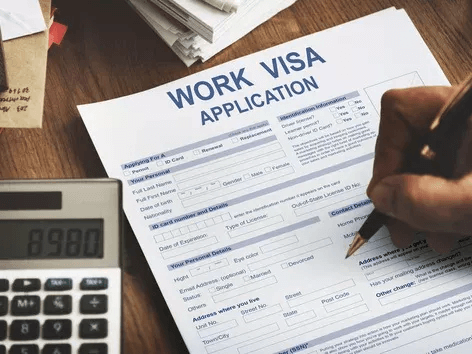
Moving to Dubai is no easy feat. In fact, for anyone going to Dubai, the most crucial advice is to leave all biases at home.
Expats from all over the world have been flocking to Dubai in recent years in search of sunny weekends and tax-free income. Today, only 20% of Dubai’s population is Emirati, with reports claiming that an astounding 80% of citizens are expats!
If you’ve landed on this article, chances are that you’re considering coming to Dubai to experience life among the sand, sea, and tall buildings of Dubai. So here are some things you need to know before moving to Dubai.
Table of Contents
There are many entry routes to Dubai
The UAE government offers various types of visas to people who wants are considering moving to Dubai. For instance, there are those who want to work for companies for up to two years and investor visas to people who invest more than a certain amount and want to live in the country for five to ten years.
Also, professionals who make the most important contributions to the country can now become citizens and get local passports, which wasn’t possible before.
More recently, the UAE government announced the issuance of Golden visas to eligible individuals making it easier for those considering to move into Dubai.
Dubai is a very safe city
Abu Dhabi, Dubai, and Sharjah were all ranked among the top ten safest cities in the world in 2020, making the UAE the only nation in the world to have three of these cities.
Dubai’s reputation as one of the safest cities to live in is a result of its severe penalties, lengthy prison terms, well-publicized convictions, and use of undercover police.
The other sight you might encounter is a laptop, a pocketbook with $20 on top, and no one else in the cafe for at least a half-hour. Everyone in the group is aware that nothing will ever be attempted to be stolen. It simply does not occur.
Cost of living could be high
Unfortunately, most of the money you save on taxes will end up going straight to your landlord, since rent prices in popular expat areas have skyrocketed in the last few years and continue to go up by 2-5% per year.
On top of that, shopping for groceries and eating out will be hard on your budget because many products have import taxes.
- The average cost of living for a family of four is about 18,158 AED ($4,943.51 USD) per month, while a single person spends about 10,738 AED (2,923.42 USD).
- To get a full picture of your monthly costs, you need to add the rent costs. Depending on the size and location of the property, the average monthly rent is between 3,413 AED (929.19 USD) and 9,577 AED (2,607.33 USD).
You can get a better idea of the rentals you’ll have to pay, browse the listings at Bayut or PropertyFinder. You can filter them based on your requirements such as the neighborhoods, number of rooms, size area, building type etc.
Most people speak English in Dubai
Since Dubai is a popular tourist destination, many locals can speak English. Even if you don’t speak Arabic, you can navigate the city without any problems.
Though it’s not necessary to learn Arabic to travel around Dubai, the majority of residents in Dubai will eventually learn at least some Arabic. For instance, you’ll quickly learn that the phrase “yalla, yalla, yalla!” means “hurry up!” if a stranger starts shouting it behind you on the street.
Stable and prospering economy

Even though oil prices change and there is economic uncertainty around the world, Dubai continues to do well and has a stable economy.
With more business opportunities and activities registered in the UAE, it well positioned to steer towards sustainable growth. In fact, Dubai recorded a 25% increase in business registrations during the first half of 2022 compared the trailing period.
On the other hand, its currency, The Emirati Dirham (AED), is stable against the major currencies such as the Euro and US Dollar.
Dubai’s economy is mostly based on tourism and the amazing work force of expats, which keeps growing steadily. Entrepreneurs in Dubai are aware of this, so when they decide how much to pay their employees, they tend to be very generous.
People might be willing to take a chance on moving to the thriving Emirate because of these financial perks.
Medical insurance is a must

You must arrange for medical insurance before moving to Dubai due to the lack of social security or welfare system (thus the absence of social security payments on your income).
In contrast to the UK, it is particularly difficult for foreigners to access the healthcare system in Dubai. Therefore, it is advisable to invest in a reliable medical insurance plan to protect yourself in case of any continuing or emergency health difficulties.
If you’re coming to Dubai as an employee, it’s worth talking to your new employer about medical insurance if you’re moving to Dubai for work or find work while you’re there because they could be able to pay for it.
Make sure you are aware of the rules
If you want to avoid getting into problems, it’s always good to be aware of the laws of the state and the city.
Dubai’s strict penalties and zero-tolerance stance are largely responsible for the city’s low crime rate. Make sure you complete your study before setting foot on UAE soil because there are many rules and regulations to review.
Here are some of the rules that you need to know:
- Capturing someone’s image without their permission: This is frowned upon in Dubai as a violation of someone’s privacy.
- Poppy seed possession: Since poppy seeds can be used to make opium, they are illegal in the United Arab Emirates. If you are discovered with even a small amount of poppy seeds, whether they are in a meal or not, you could go to jail.
- Food and drink on all public transportation: If you are caught eating or drinking anywhere in this city, including the metro, buses, and the stations, you risk obtaining a fine.
- Swearing out loud: Swearing is punishable by a fine of up to 10,000 dirhams (£2,157) and a jail sentence of up to one year. Additionally, flashing your middle finger will get you deported.
Be prepared for the Summer heat
It’s likely that those moving to Dubai have heard about how hot the city is. But until you come here, you won’t realize how hot it is. It can feel like you’re inside an oven during the summer when temperatures often reach the mid 40s (115F).
There are, however, methods for dealing with the heat. Every building in the city has air conditioning, including bus stations. Even though the distance between the office and the car is painful, a fresh breeze is always nearby.
However, that said, temperatures typically drop to the low 20s during the milder months of December through March, but that is as cold as it gets.
It’s tax-free!
Yes, you’ve read that right! Dubai doesn’t have income tax or forced social security payments, so your salary is the same as what you earn. Compared to what high-earners get paid in other parts of the world, that could mean you get 60% more for the same salary than you would somewhere else.
However, there are still some taxes you’ll have to pay, such as import duties on goods from outside the country and rental taxes.
As of January 1, 2018, there is a 5% VAT in the country of the UAE. Instead of asking for income tax, it will bring in money for the country.
There’s accommodation options for everyone
When moving to Dubai, one of the few problems you might face is finding a place to live that fits your needs and your budget.
The living spaces in Dubai are kept clean and up to date, which is a good thing. Residents also have a variety of ways to pay, such as monthly, quarterly, semi-annually, and more.
Here, you can choose from a variety of places to stay, from small studios to high-end waterfront villas.
Top-notch educational standards for children
Dubai is home to a huge number of schools and other places of learning. Expats from the UK and the US have a lot of school options in the UAE because many schools follow the curriculums of their home countries.
Other schools follow the education system of the student’s home country, such as the Indian, Pakistani, Australian, German, or French system. You can find out about the curriculum, annual fee, and teaching method of any school through their websites.
You could consider sending them to an international school for which you have plenty of options. The main language at these schools is English, which will help your kids adjust.
Your children will slowly learn about their new home as they learn Arabic and the culture of the area. Additionally, other children from expat families make it easier for them to make new friends.
Good transportation system

Since 2009, Dubai’s metro has been running. It is one of the most advanced, fully automated, driverless transit systems in the world. It’s important that you learn how the public transportation works in Dubai while your trying to settle in.
Dubai’s public transportation system works well and doesn’t cost too much. It has two lines: the Green line, which goes from Etisalat to Dubai Creek with 20 stops, and the Red line (with 28 stops stretching from Al Rashidiya to UAE Exchange).
There are also many public transportation options, like buses, metro, taxis, and water buses. Because of rush hour traffic, it is also easier to take public transportation than to drive.
Try a variety of local and Middle-Eastern dishes
One of the great things about moving to a multi-cultural city like Dubai is that you can try various delicacies across different countries.
Being in the Middle East, you can expect to find tasty food in this city. The food in the Middle East is known for its taste and size.

Here are some of the most famous dishes you should try in Dubai to get you started:
- Manousheh
- Iranian Sangak,
- Al Harees
- Al Machboos
- Samboosa and
- Knafeh
For people who say they love to eat, the restaurants in Dubai are a good reason to move there. In fact, some of the best restaurants in the world are in Dubai.
Even though not everyone who visits Dubai will be able to try all of these unique luxuries, there’s always something for everyone.


